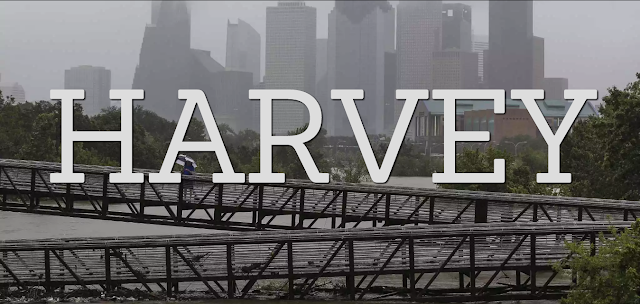Houston Students, #Harvey Edition
Thursday, 31 August, Starbucks. Home power is off and I needed to get
out of the house and hear peoples’ voices and the sounds of the store machines,
the aroma of hot coffee. The store wifi is off right now and that’s fine. I
don’t need to be connected all the time.
Multiple emails from the LSCS chancellor and NH president.
They’re very assertive and reserved at the same time. Kingwood is a mess and I
have to be grateful that, this time, NH has been a source of strength,
providing shelters for nearly 200 residents.
 |
| (c) Houston Chronicle, 2017 |
Of course, I’m concerned with the students. I know some live
in Greenspoint with its regular flooding events. I’m hearing from former
students that some of East Aldine has avoided massive flooding, while West
Aldine has its regular high water. Much of Spring has avoided flooding. But I
expect about half of my students to miss first week because of multiple
disruptions, including transportation loss, displacement, other family
priorities, and some with financial emergencies. These are the realities of our
college students and I respect this. The brightest news this week has been
court stay the state’s assault on students in SB4, and we can refocus our
energy for a few months.
Of course, I’m also concerned about the time. This single
week loss disrupts the semester schedule, and I’ll adjust appropriately.
Unfortunately, if I lose any project, the students learn less and less prepared
for the next class. But I’m more concerned about the anxieties and stresses
because of the storm that emotionally and intellectually and socially disconnect
on campus and in the college. Even I were to remove multiple learning projects,
I fear that the students would disengage from their first year of college,
seeing the course as a fragmented, unconnected puzzle in the long path of
rhetorical engagement of the community and the college. Ah, all these words are
idealistic.
And so I wonder, what’s the purpose of college? I know the
students come in with their big dreams of being doctors and business owners and
engineers, and some of them will go there. But I know that most students will
be interfered with the realities of our communities – our working class
communities, often first-generation college students unaware the demands of
college, our communities’ needs of transportation, food, sleep, real social
networks. And after this regional massive disaster, what’s the purpose of
college? What can I, in my course, provide my community something relevant to
rhetoric and composition that can response to #Harvey’s destruction, often true
horror, displacement and refuge, losses and rejoices?
I’ve always believed that my course all validates my
communities, reflected my communities, and prepares students for responding the
communities against the lethargy, conservatism, hegemonic disenfranchisement of
the local powers and systems. Some of my students see those connections, some
do not, and I cannot expect all students to believe the course really changes
everyone. But after this disaster, I want students to really examine themselves
and see how those powers and systems and respond through the students’ lives,
histories, languages, and experiences. Now that these students have experienced
a massive disaster of this size, moving their bodies, minds, and discourses,
they are uniquely in position to bring their expertise into an intellectual and
academic inquiry and collaborate a singular project that affirms the
communities’ organic and local knowledge.
This is all rhetoric. This is all about composition, both
receptive and productive.
But I’m also aware that some students will respond to this
raw exploration as too real of shock and anxiety. Over the last weekend, while
the Harvey storm was still young and raw, I received texts from friends who
experienced already news fatigue. I get that. So, students will have choice to
avoid those anxieties, while still focusing on the communities’ discourses and
texts. This could also be interesting to see student choices for analysis and
writing because of the very real situations. When does a scholar embrace an
intellectual inquiry and when does a scholar avoid the inquiry? Professional
scholars regularly make these choices to lean toward or against topics and
resources because they have that academic freedom. Similarly, freshmen students
must have those choices to best prepare their long- and short-term intellectual
growth.
But if we look at this historical moment and bring students’
knowledge for long-term examination, this could affirm the real purpose of
Rhet-Comp as a useful academic discourse, showing students’ means and resources
affirming the real purpose of the community college.
Someone in my college, unfortunately not ironically, last
week before the storm, that the purpose of freshman writing is merely “semi-colons.”
He had long apostatized his intellectual inquiry, long abandoned the
communities as sites of inquiry, long discarded students’ lives and potential.
I fumed and ended the meeting, wondered as I walked away why a “professional,”
a “doctor of philosophy” had despaired of community colleges. These people
should have retired long, long ago. And while during these week’s storm, I
received texts from a dozen former students who both shared their experiences
and asked about my concern. These former students are still students or are university
graduates, part of the larger Houston intellectual community.
Be strong, and courageous.
Dixi et salvavi animam meam
Twitter @comstone

